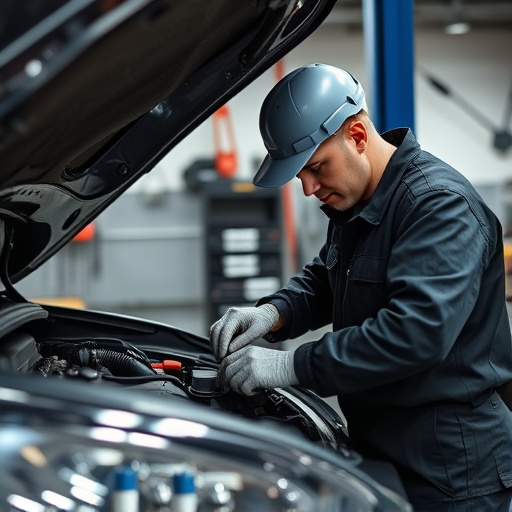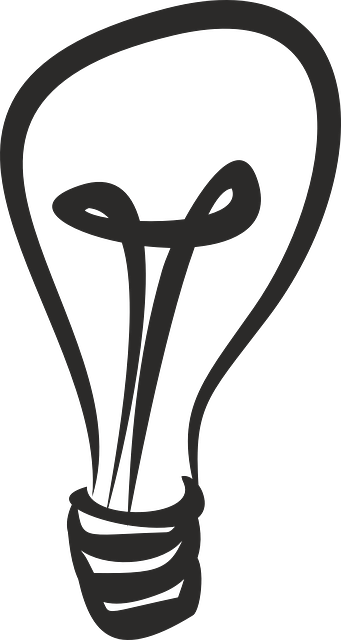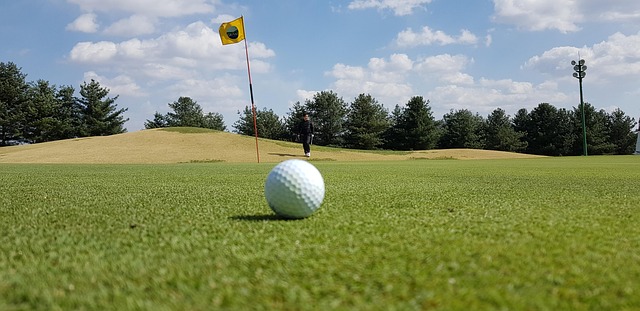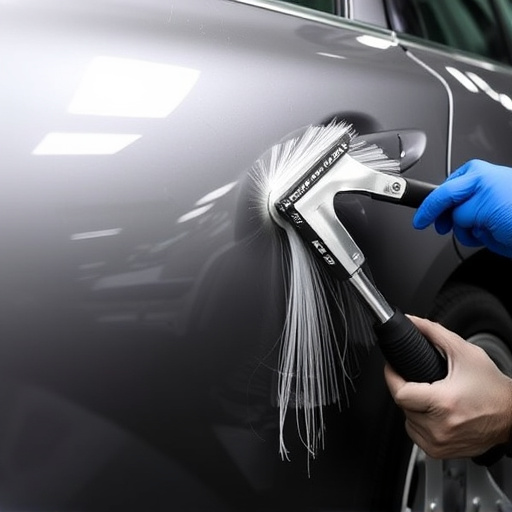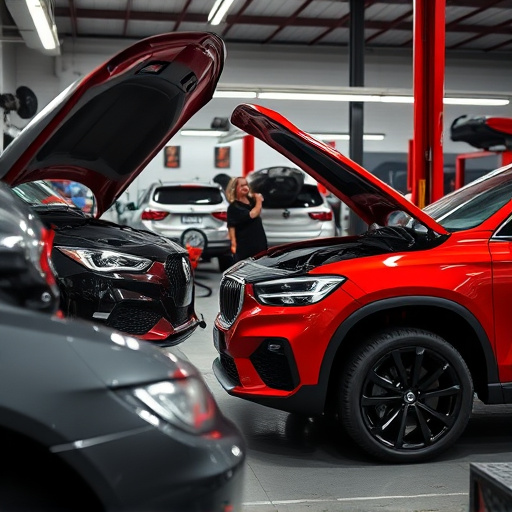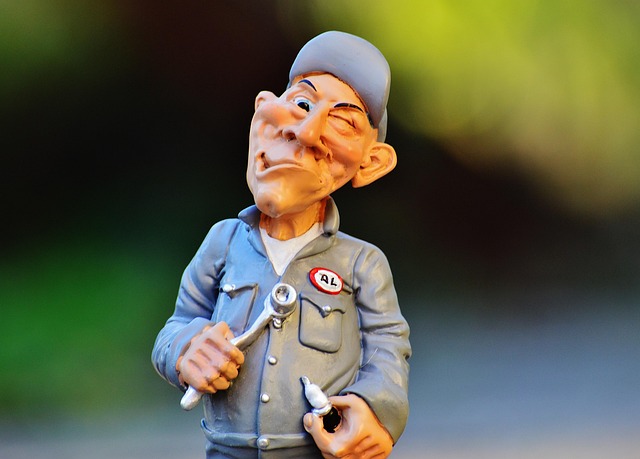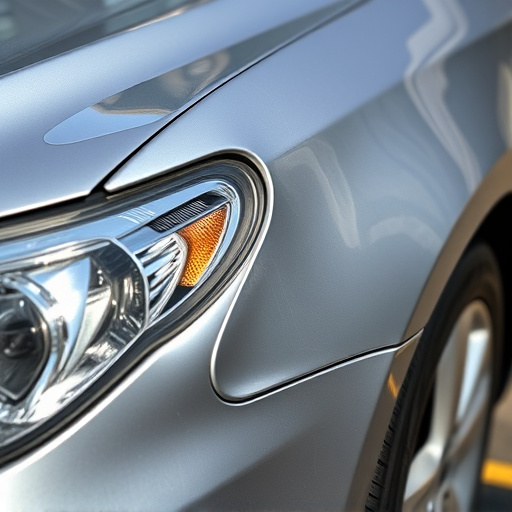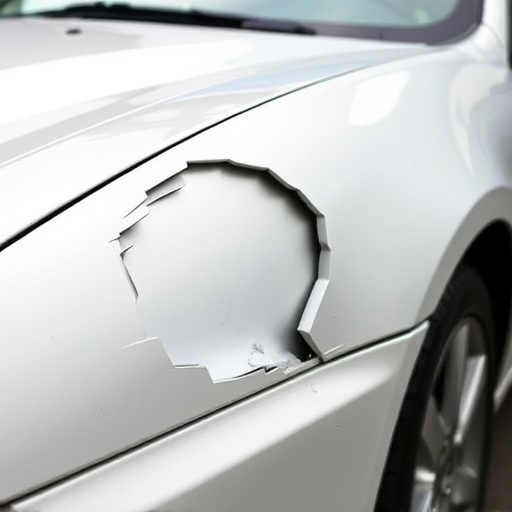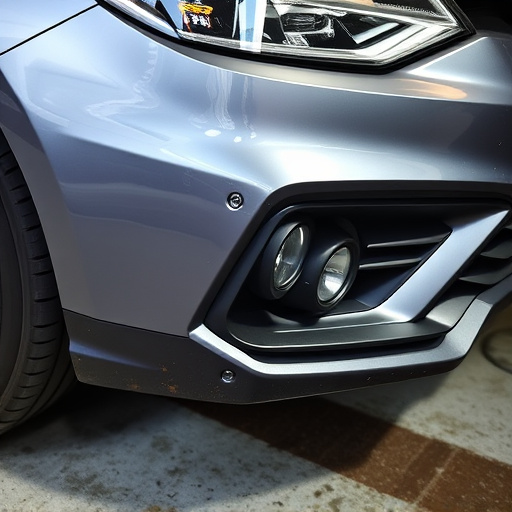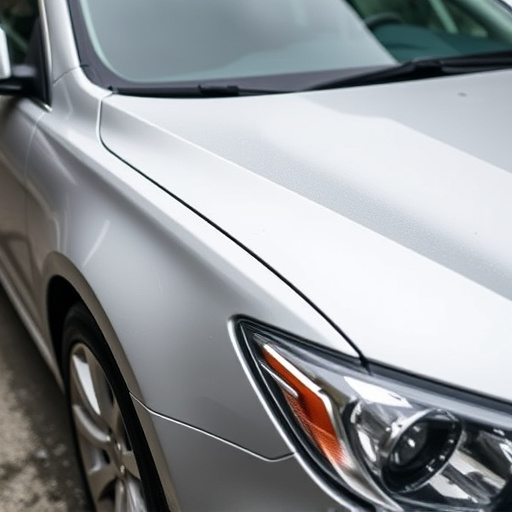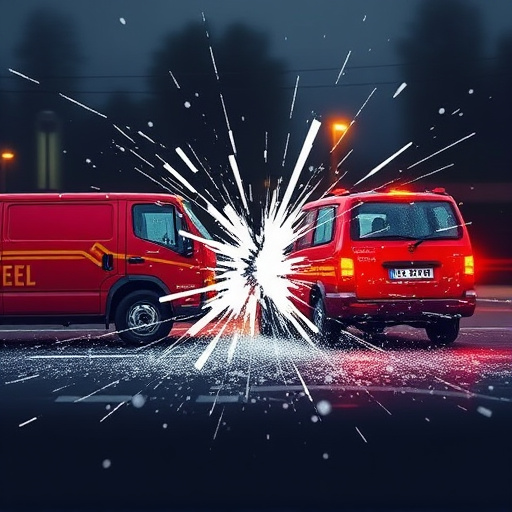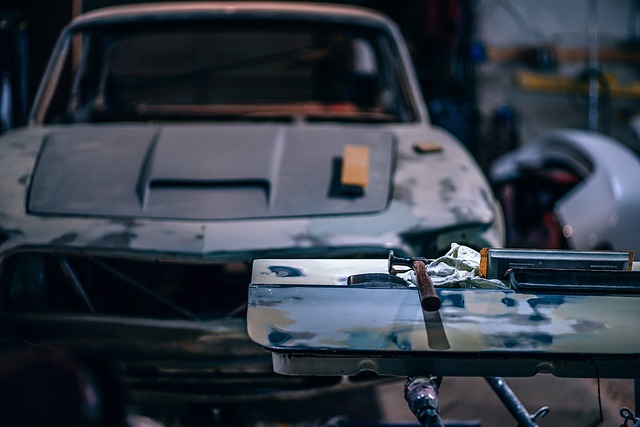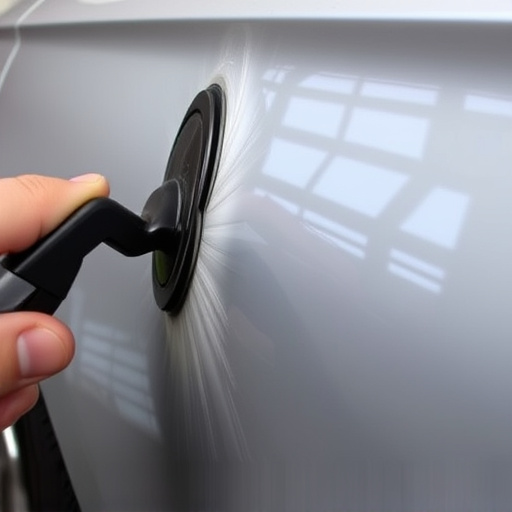Calibration tools are vital for collision repair shops, enabling precise measurements and adjustments, accurate damage assessment, and error-free repairs. They streamline workflows, reduce turnaround times, enhance effectiveness, and ultimately improve customer satisfaction and vehicle safety. Proper training, maintenance, and deployment of these tools balance efficiency and timely service delivery; their absence or misuse causes bottlenecks. Advanced calibration tools lead to minimal repair times, efficient processes, accurate alignments, and faster deliveries, making them indispensable assets for top-performing bodywork shops.
In the fast-paced world of collision repair, every minute counts. Calibration tools, designed to ensure precision and accuracy, play a pivotal role in the overall repair process. This article delves into the intricate relationship between calibration tools and collision services, exploring how they impact total repair times. We analyze the benefits and potential delays, offering strategies to optimize efficiency using advanced calibration technologies, ultimately streamlining the collision repair experience.
- Understanding Calibration Tools in Collision Repair
- Impact on Repair Process: Efficient or Delayed?
- Strategies to Minimize Total Repair Time with Advanced Tools
Understanding Calibration Tools in Collision Repair

Calibration tools play a pivotal role in the efficient functioning of any collision repair shop. These specialized instruments are designed to ensure precise measurements and adjustments during the restoration process, enabling auto repair services to be carried out with utmost accuracy. By calibrating equipment such as measuring tapes, height gauges, and computer diagnostic tools, technicians can accurately assess damage and implement repairs with minimal errors.
In a collision repair center, calibration tools help streamline the entire workflow, from initial assessments to final quality checks. Regular calibration ensures that every tool is functioning optimally, leading to faster turnaround times for customers. This precision not only enhances the overall effectiveness of auto repair services but also contributes to the overall quality and safety of the repaired vehicles, ultimately fostering customer satisfaction.
Impact on Repair Process: Efficient or Delayed?
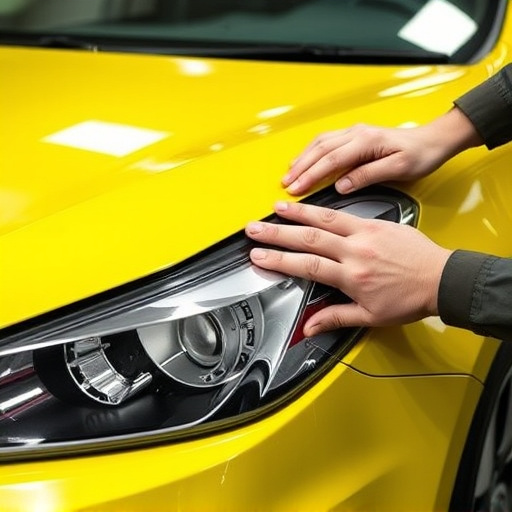
The integration of calibration tools in collision services has a profound impact on the overall repair process, acting as a double-edged sword. On one hand, these advanced tools streamline various tasks, particularly in complex classic car restoration projects or paintless dent repair procedures, significantly reducing repair time. Calibration ensures precision and accuracy, allowing technicians to work more efficiently, minimizing errors that could lead to delays. As a result, collision damage repair can be executed faster, benefiting both customers and repair shops by reducing wait times.
Conversely, the absence or improper use of calibration tools can cause significant bottlenecks in the repair process. Inaccurate measurements and misaligned parts, for instance, necessitate rework, which prolongs total repair time. Moreover, some advanced collision services rely heavily on these tools, making their unavailability detrimental to maintaining efficient workflows. Thus, proper training, regular maintenance, and an understanding of when to deploy these calibration tools are crucial to balancing efficiency and timely collision service delivery.
Strategies to Minimize Total Repair Time with Advanced Tools
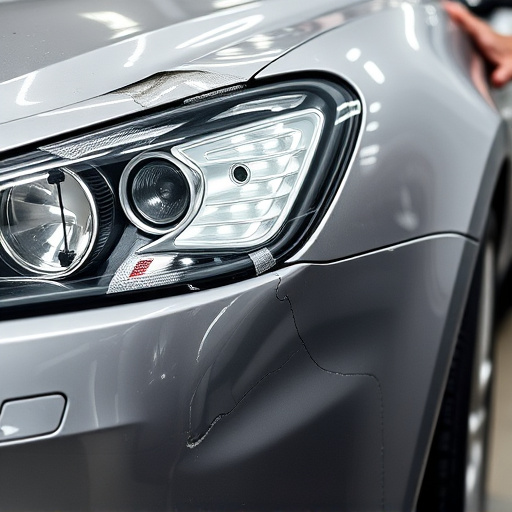
In the realm of car body shop operations, minimizing repair time is a game-changer for any car bodywork services provider. Advanced calibration tools collision services play a pivotal role in achieving this goal. By investing in sophisticated technologies, car paint services can streamline their processes significantly. For instance, precision measuring devices ensure that every component is accurately aligned during the repair process, reducing the need for reworking and thus saving time.
Additionally, digital imaging and computer-aided design (CAD) systems enable technicians to visualize and plan repairs more efficiently. These tools offer an accurate, step-by-step guide, facilitating faster and more consistent results. With the right calibration tools collision services, a car bodywork shop can enhance productivity, reduce customer wait times, and ultimately, deliver high-quality repairs in record time.
Calibration tools in collision repair play a pivotal role in streamlining the overall process. By accurately measuring and adjusting components, these advanced tools significantly reduce repair times compared to traditional methods. Embracing their potential through strategic implementation can lead to more efficient workshops, happier customers, and a competitive edge in the market for collision services.
